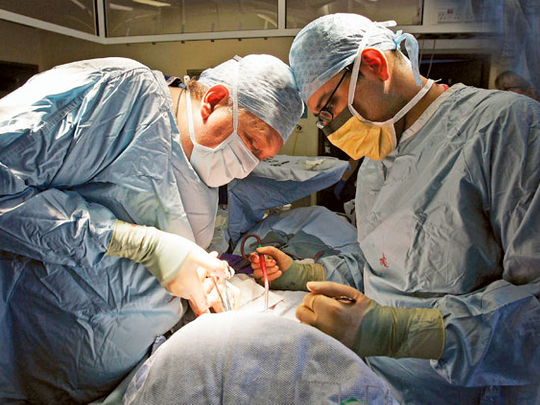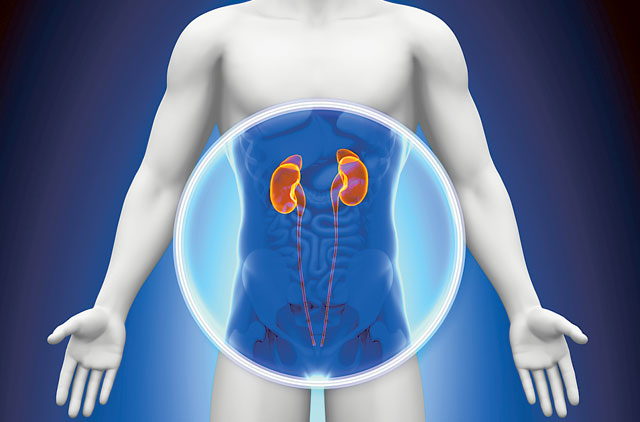
Dubai: Three kidney failure patients will undergo the first transplant operations in Dubai by March-end this year after doctors selected them from 20 needy patients, a transplant surgeon said.
“It is a long and complex process, finding a donor that matches,” said Dr Farhad Kheradmand Al Janahi, specialist urologist and transplant surgeon at Dubai Hospital.
Live donors have been found for the three patients, said the surgeon who set up a kidney transplant unit at Dubai Hospital, the first such unit in the emirate.
Chronic kidney disease is unfortunately more prevalent in the UAE due to lifestyle diseases such as diabetes, hypertension (high blood pressure) and obesity, he said.
Physicians have called for more awareness of the disease and how important our kidneys are, as countries across the globe today (Thursday) mark World Kidney Day.
Doctors have called for regular screenings to detect the disease early so that people do not have to spend a fortune in dialysis, a process that gets rid of toxins mechanically once the kidneys fail.
It is a painstaking and time-consuming process. It also has a negative impact on the patient, the family and society. The patient has to go to the hospital two-to-three times a week for five hours, and that impacts on his employment.
This process of getting rid of waste is very inefficient as the machine can only do about 20 per cent of the job that the kidneys can do.
The more efficient way is to get a kidney transplant, but the costs here are huge. It is estimated that it will cost between Dh 200,000 to
Dh 500,000 for a transplant operation.
Dr Al Janahi said there are 250 patients at the Hospital that need regular dialysis. “This is just at Dubai Hospital,” he said, implying there are hundreds more across the UAE that need this life-saving process.
Earlier, the National Transplant Centre in Shaikh Khalifa Medical Centre, Abu Dhabi, was the only authorised transplant centre in the country. The Dubai unit opened in January this year.
The surgeon said he hopes to soon initiative a donor card programme. He implied that people’s attitude towards organ donation is changing and gave an example of a family in Dubai that asked him if they can donate the organs of the father (who is brain dead).
He explained that no organ from a card holder would be taken if the person is brain-dead or in a coma, without the consent of close relatives. “The body belongs to the family, but it (a donor card) makes it easier for the doctor to explain to the family the card-holder’s wishes,” he said.
The surgeon said he will establish a cadaveric transplant unit soon for not only kidneys, but pancreas, lungs and other vital organs. “One donor card holder can help five patients waiting for organs,” he said.
Doctors said people are dying needlessly as there is no national donor system in place. Desperate patients are falling prey to organ marketers in some other countries, they said.













